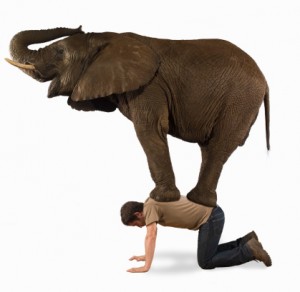The Spirit of Automation (Part 4)
By Asher Crispe: March 14, 2013: Category Inspirations, Living with the Times
 When the common contention that ‘life is difficult’ spreads and infects every sensory window onto the world, every cell of our body, every fiber of our being, we may come to interpret living itself as hard work. The apparent totalizing effect of ‘all work and no play’ which weighs down our existence, places us into survival mode. Sleeping, eating, breathing, thinking, feeling, and communicating all require some exertion on my part. Life that seems unnatural and uncomfortable is the first sign of existential alienation. Work here is not about a part time job–it consumes the whole of time. To struggle out of nothingness and strain to maintain my head above water incessantly saps my energy. Consciousness itself takes effort. Reality is determined by war and conflict. Therefore my fight is with Being.
When the common contention that ‘life is difficult’ spreads and infects every sensory window onto the world, every cell of our body, every fiber of our being, we may come to interpret living itself as hard work. The apparent totalizing effect of ‘all work and no play’ which weighs down our existence, places us into survival mode. Sleeping, eating, breathing, thinking, feeling, and communicating all require some exertion on my part. Life that seems unnatural and uncomfortable is the first sign of existential alienation. Work here is not about a part time job–it consumes the whole of time. To struggle out of nothingness and strain to maintain my head above water incessantly saps my energy. Consciousness itself takes effort. Reality is determined by war and conflict. Therefore my fight is with Being.
Or is it?
Cannot life be conceived and experienced otherwise? The domestication of existence acclimatizes me to living naturally. Being comes automatically, instinctually, spontaneously, fluidly. The lubrication of reality permits a flow of interactive experiences paving over the cobblestones of our adventures and thus reducing the amount of fiction we encounter. I am at peace with who I am or more specifically with the fact that I am. This alternative to the unrefined coarse characterization of reality produces the quantum leap into the existential state of rest embodied as the Sabbath. As opposed to the tedium of life, this orientation towards reality derives energy and joy from life. It is as simple and natural (in the manner of coming free and easy of its own) as anything we could imagine.
This broad ontological reframing of the profane and the sacred amounts to thinking of the former as a confining finitude which squeezes and slowly drains me away while the latter opens the world and self to infinite possibilities that are upbuilding. In the first instance, we are born and spend the entirety of our lives dying. Its all down hill. Life kills. In the second attitude, life breads more life. It fills me. It is one long ascent.
In the extreme, pure mundane time and the events that populate it cannot reach beyond themselves. They have nothing outside themselves to appeal to, no greater intention, no place in a bigger picture. Their perceived disconnected limitation spoils them particularly when they are pulled from the historical soil within which they were planted. This state of existence is the domain of animality. Do not consider it a condition of animals alone. It is also the animal side of the ‘human animal.’ The animal is not seeking personal transformation nor the alteration of its world. It clings to reality as it is initially disclosed to it. We might suppose that the animality within us is in touch with the ground of existence. It identifies with and is identified by the way things are. Six ‘work’ days are the yoke of the animality of time.
By contrast, the humanity of the human-animal interplay of interior forces represents our aptitude for transcendence. Never content to leave things the way they are, the human desires more. We dream of supernatural abilities. We want to become a reflection of abstract essences which are eternal and detached from present reality. Our contemplation of these essences (what is essentially true, good, just, loving, compassionate, etc…) cause us to question ourselves and the world we live in. Can we not make it better? Can we elevate our nature? Our heads launch us off the ground and soaring into the heavens, our flights of thought hold the promise of something better even if it is not yet reflected on the earth. This takes us outside of our present history and cuts the causal chain of eventualities. It’s a Sabbath state, a break with the mundane, an end to entropy and the separation of the Holy.
In the works of the kabbalists and the chassidic masters, this experience refers to a filling in of the Divine name Havayah which means ‘Being’ or ‘Reality.’ While there are many ‘fillings’ or modes of Being, the two that are the most commonly used are known as Mah and Ban. Mah is spelled with the letters Mem-Hei (40+5) which equals Adam (45) in Hebrew (Adam signifies the universal human condition). Likewise, Ban is spelled Beit-Nun (2+50) which adds up to the word beheimah or ‘animal’ (52). In this way, Mah may be regarded as the Sabbath, the heavens, the idealization of reality in abstract essences, the timeless reverberating in time. Similarly, Ban denotes the six days, the finitude of existence, the migrations of reality in all directions (six days are, once again, likened to the six extremities of space) without a center (Sabbath) to anchor them, to tie them together.
The unification of Mah and Ban is one of the most important concepts in all of Kabbalah. It completes the archetype of the week (shavuah) which also means an ‘oath’ or promise. Adding time together (45) Mah plus (52) Ban yields 97 which the Arizal equates with zeman (Zayin [7] + Mem [40] + Nun [50]) or ‘time.’ This suggests that time itself is a marriage of the ideal (Adam/human) and the real (animal). Altogether the week organizes temporality by harnessing the real with the ideal. Simply put–the response of the Human which questions (Mah means a ‘what’ and is the form of a question) to an unquestioning animal is in the form of a challenge. The animal side says ‘that’s not the way things are’ to which the human insists that ‘this is how they should be.’
If our two time zones are the six week days (animal) and the Sabbath (Adam/human) then the elevating of the six into the seventh (automation) would be tantamount to a condition which we will call the naturally unnatural (the miracle or supernatural aspect of technology becomes commonplace). Nature (animal/six days) is transformed into miraculous states (automation) on the seventh. Increasingly we are sensing the utterly miraculousness of nature itself and this miracle of nature is a ‘Sabbath.’ The human is riding the animal in this configuration of time.
 Finally, as we move in the other direction and bring the Sabbath into the mundane then everything is unnaturally natural. This describes our experience of flow. Creative flow in all of our work gives us a miraculous sense of how natural it feels. It’s uncanny how I am outside and beyond my ordinary self, almost as though I have lost myself or the self consciousness and ascend above my own limited nature to accomplish things that I shouldn’t be capable of. In this arrangement, the animal starts speaking and acting like a human being. It is imbued with anthropomorphic qualities.
Finally, as we move in the other direction and bring the Sabbath into the mundane then everything is unnaturally natural. This describes our experience of flow. Creative flow in all of our work gives us a miraculous sense of how natural it feels. It’s uncanny how I am outside and beyond my ordinary self, almost as though I have lost myself or the self consciousness and ascend above my own limited nature to accomplish things that I shouldn’t be capable of. In this arrangement, the animal starts speaking and acting like a human being. It is imbued with anthropomorphic qualities.
In Part Five we will continue to uncover additional dynamics of these two modes of Being known as Mah and Ban.
http://www.interinclusion.org/inspirations/the-spirit-of-automation-part-3/
http://www.interinclusion.org/inspirations/the-spirit-of-automation-part-5/
The Spirit of Automation (Part 4),

















;)
;)
;)
;)
;)
;)
;)
;)
;)
;)

Thank you for helping me understand my deepest feelings… truly a feeling of “unnaturally natural” purpose.